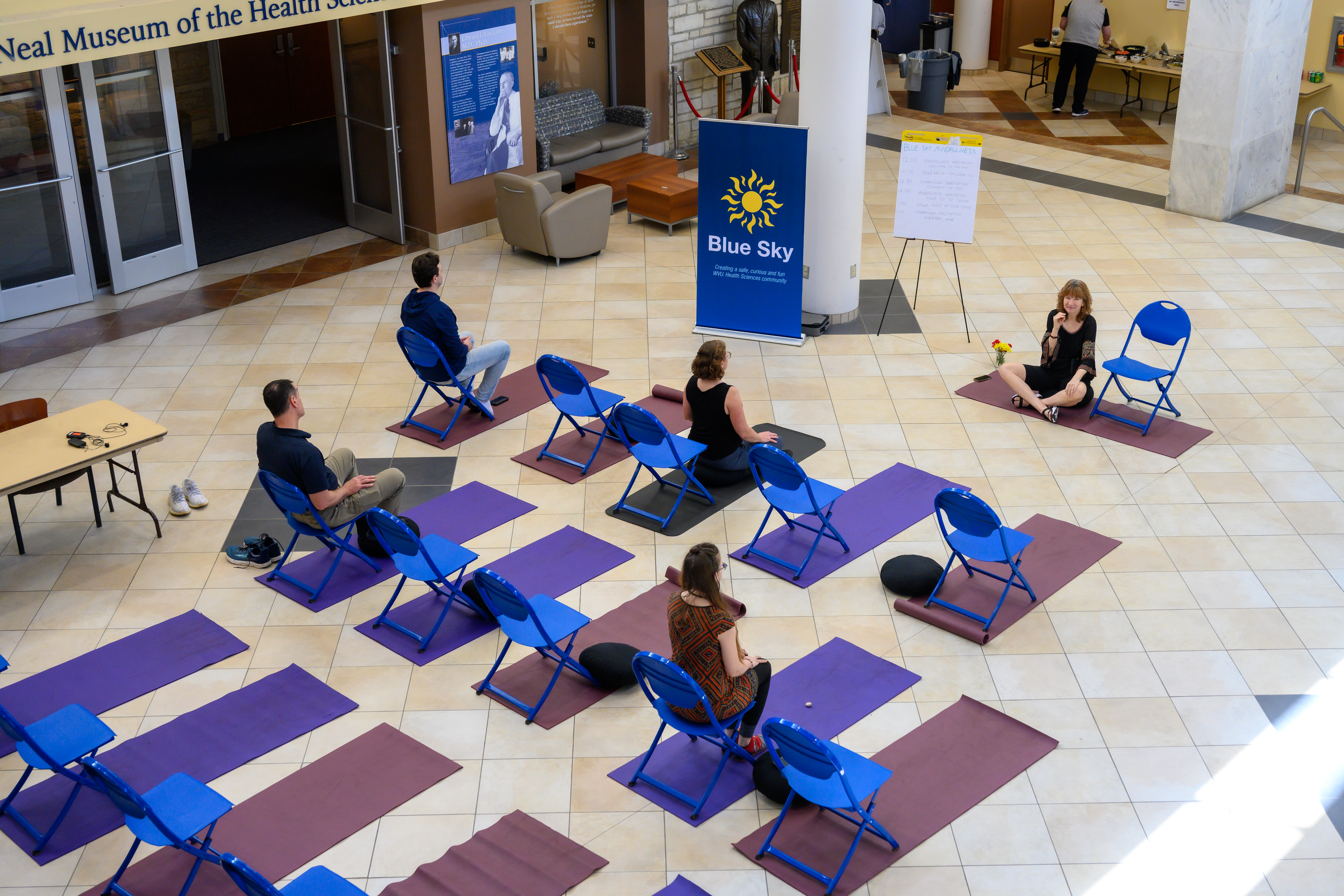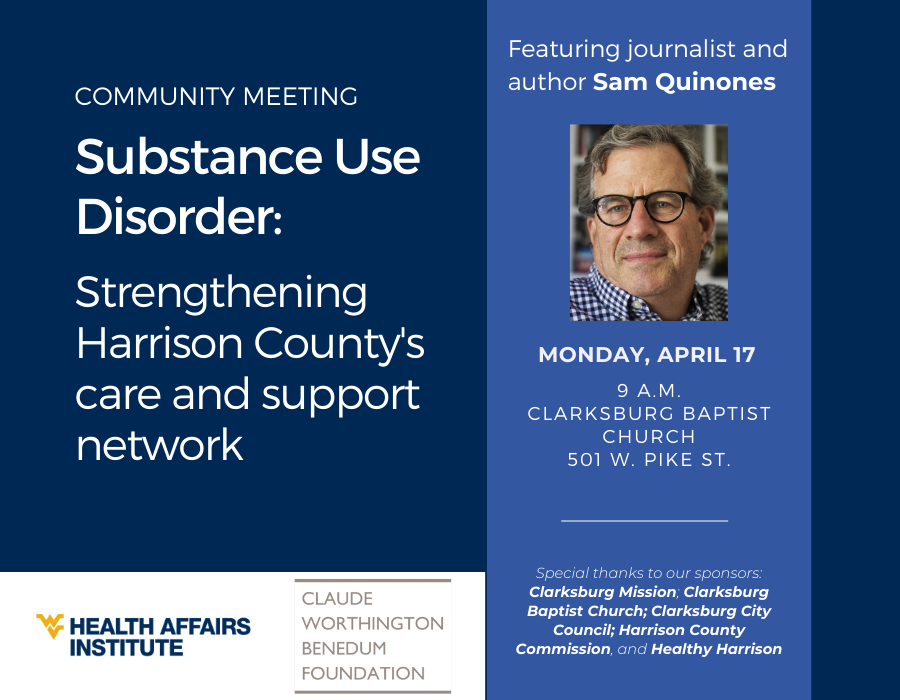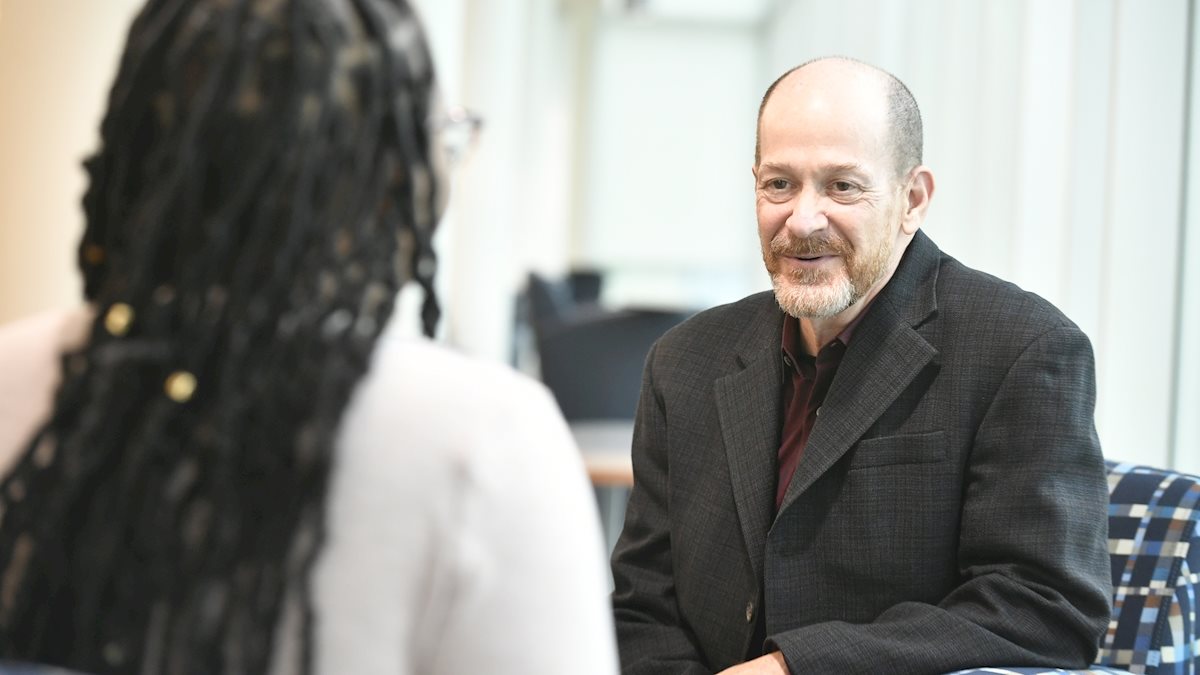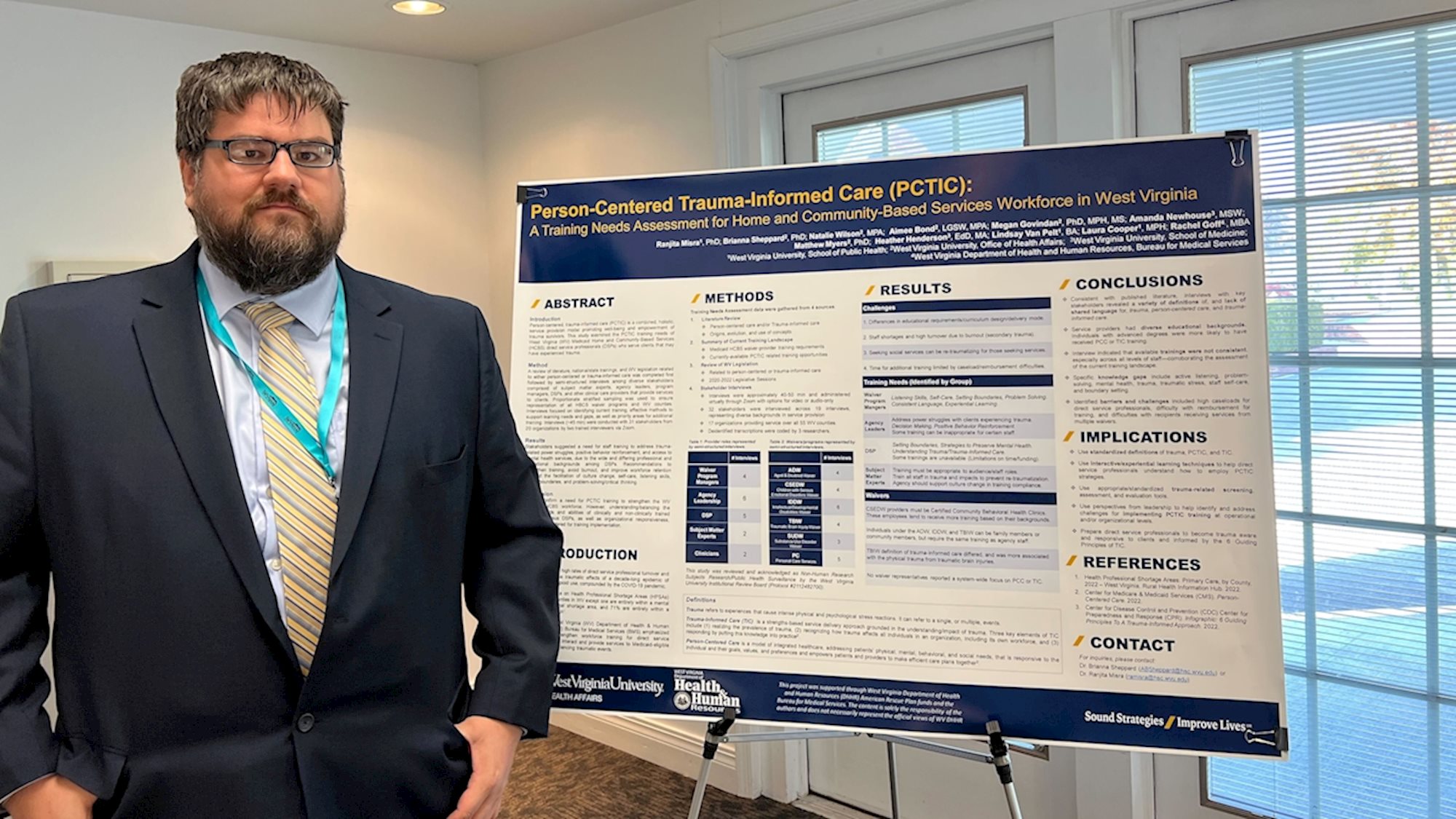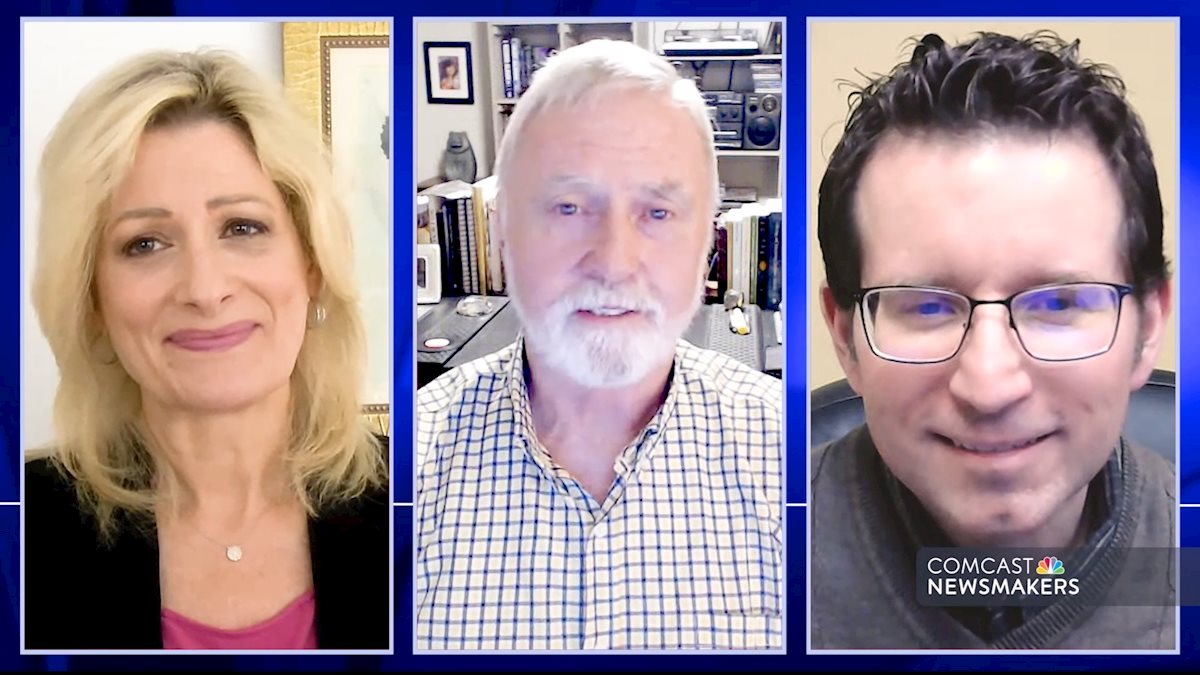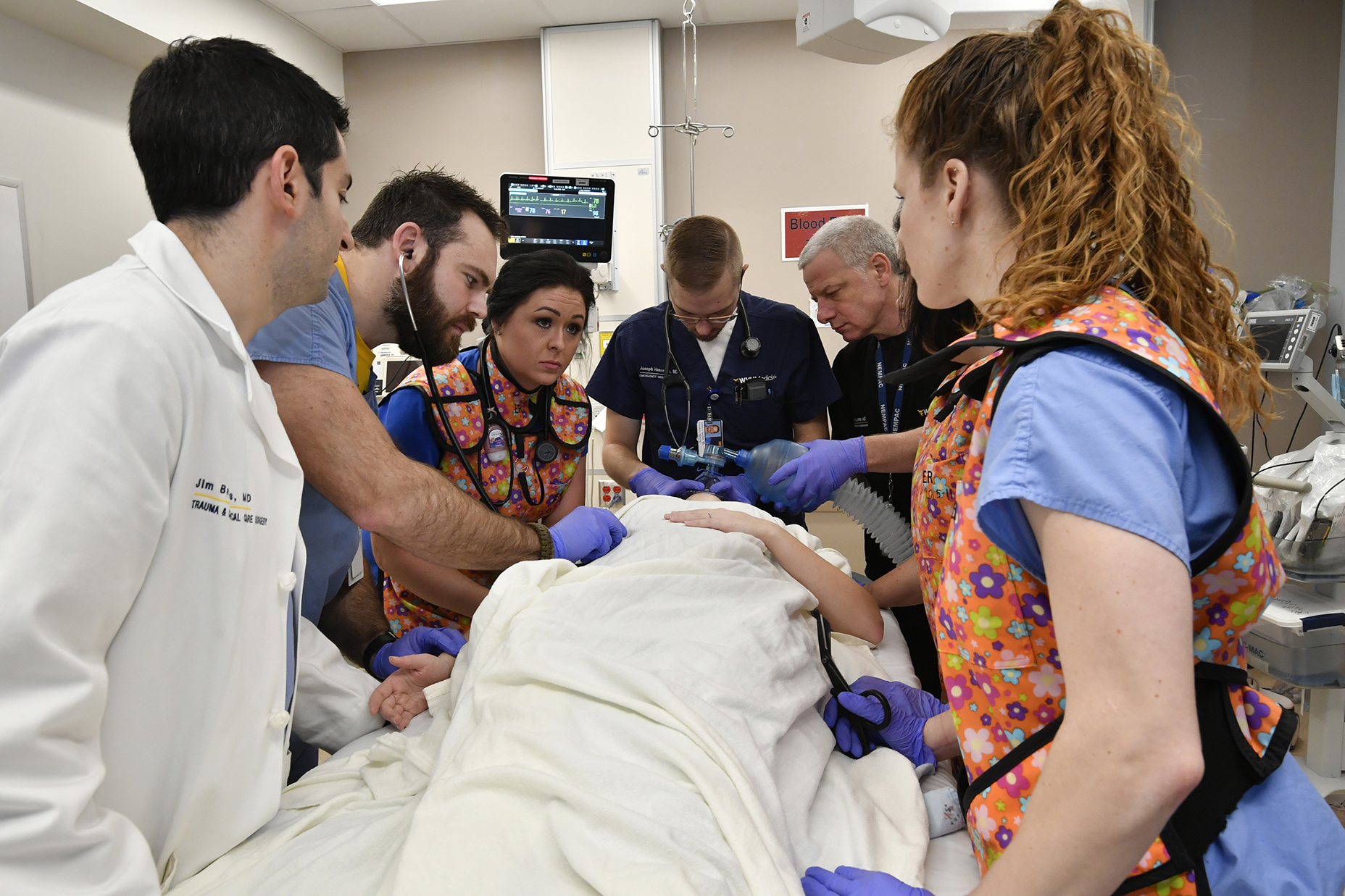Health Affairs Institute launches effort to build healthcare extension cooperative

The concept of Extension Services is familiar to most West Virginians. WVU’s Extension Service has been an integral part of the University’s land grant mission since its founding and continues to provide outreach services across all 55 counties. The concept of Healthcare Extension Service is much newer and has recently been organized at the federal level by the U.S. Agency for Healthcare Research and Quality (AHRQ). The AHRQ program’s overall goal is to improve healthcare by accelerating the uptake and use of evidence-based interventions in healthcare delivery settings. AHRQ’s Healthcare Extension Service program is focused on reducing healthcare disparities especially among people who receive Medicaid, are uninsured, or are medically underserved.
In late September, AHRQ released a Notice of Funding Opportunity (NOFO) for the establishment of 15 state-based Healthcare Extension Cooperatives that will be at the forefront of the Healthcare Extension Service initiative. Each state cooperative is required to: establish and maintain an organizational structure that will manage and coordinate a statewide effort; outreach, engage, and support healthcare organizations that provide care to medically underserved populations; and evaluate the effectiveness of these activities. Each state cooperative is also required to implement an initiative that focuses on improving evidence-based care related to behavioral health.
Recognizing the need for and importance of this opportunity, the WVU Health Affairs Institute (HAI) took steps to begin organizing a response to apply for funding on behalf of the State of West Virginia. With nearly one-third of the West Virginia population enrolled in Medicaid and about 32% receiving healthcare services through Federally Qualified Health Centers (FQHCs), HAI believes this opportunity can help strengthen the state’s safety net healthcare delivery system.
After initial meetings with state health and human service leaders, a multistakeholder group was convened to discuss the requirements of the NOFO and review a preliminary plan on an application for West Virginia. The meeting was facilitated by Quality Insights, West Virginia’s designated Quality Innovation Network-Quality Improvement Organization, and included a diverse group of stakeholders comprising representatives from West Virginia’s health and human service agencies, three medical schools, WVU’s Extension Service, managed care organizations, several FQHCs, and numerous other organizations that provide services to medically underserved populations.
Read more: WVU Health Affairs Institute project strengthens relationships among substance use disorder, social service providers
During the meeting, HAI Director Dr. Jeffrey Coben provided participants with a description of the AHRQ Healthcare Extension Cooperative program and the requirements of the application. Dr. Judith Feinberg, Professor of Behavioral Medicine & Psychiatry and Professor of Medicine/Infectious Disease at WVU School of Medicine, outlined the proposed behavioral health initiative, that is focused on substance use disorder (SUD) and its associated serious complications, like overdose fatalities, depression, viral hepatitis B & C, and HIV. Dr. Feinberg described the patient-centered outcomes research supporting the planned interventions and the preliminary work that has been conducted in West Virginia. Meeting participants provided input and suggestions, including opportunities to further expand the stakeholders involved in this Cooperative, and opportunities to expand the planned interventions into other healthcare settings. Group participants endorsed the overall application plan and also discussed how this effort may align with and build upon other ongoing initiatives to improve care throughout the State. At the meeting’s conclusion, the group stressed the importance of considering other factors that affect West Virginians’ health when tackling SUD, such as housing status, mental health conditions, and lack of trust in the healthcare system.
“People need more than just treatment for their substance use disorder,” Dr. Feinberg said. “They need care.”
As follow-up to the meeting, all participants were provided with a copy of the presentation slides and a draft charter that described the responsibilities and expectations associated with their ongoing involvement in the Cooperative. The HAI team successfully submitted an application for funding to AHRQ in early January 2025. The application included numerous letters of support and commitment from the individuals and organizations involved in these early planning discussions. The group is hopeful that these additional federal resources can be brought to West Virginia to help improve the healthcare provided in safety net settings across the State.
West Virginia’s public health institute, West Virginia University (WVU) Health Affairs Institute is a nonpartisan organization that provides expert services in progressive health data analytics, public impact research, and program implementation and evaluation in collaboration with government agencies, foundations, and nonprofits to inform the advancement of health at the local, state, and national levels.




